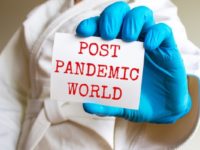University researchers in Melbourne contend that introducing a tax on beverages with added sugar could save society $176.6 million.
The study, conducted in partnership with Deakin University and Monash University, found that a 20 per cent sugar-sweetened beverage tax (SSB) for over 10 years will have cost savings of $63 million.
Under a lifetime scenario for the current population until death, overall cost-savings were $176.6 million, and direct healthcare savings at $122.5 million, with 1,309,211 decayed teeth and 254.9 disability-adjusted life years prevented.
Currently, a single serving of a sugar-sweetened beverage (375 ml) has an average of 39 grams of free sugars (Food Standards Australia & New Zealand, 2019).
Tan Nguyen, study author, oral therapist, and Monash University School of Public Health and Preventive Medicine PhD candidate, said SSB taxes increased prices and helped decrease international consumption of sweet beverages.
He said Australia had no such taxes, and research from an oral health prevention perspective was limited.
“To date, economic evaluations of Australian dental programs are scant,” said Nguyen.
“Despite many interventions demonstrating clinical efficacy from Cochrane reviews, such as fluoride varnish, fissure sealants and the use of stainless-steel crowns rather than conventional dental fillings for deciduous (baby) teeth.”
This study investigated the cost-effectiveness of interventions for oral disease prevention, which can be implemented or scaled up in Australia. It found the two major barriers to a sugar-sweetened beverage tax were a need for federal government support and industry pushback.
Nguyen explained that globally, the “burden” of oral diseases was significant, yet oral health was often excluded from evidence-based public policy in the country.
“The major contributors impacting the quality of life due to oral diseases are tooth decay, advanced gum disease, and severe tooth loss caused mostly by caries and gum disease,” he said.
“Poor oral health is highly prevalent in the Australian population and impacts mostly on vulnerable people.”
Nguyen’s collaborative research shows that limiting the availability of dietary free sugars through legislation – such as a 20 per cent SSB tax – had a “high degree of certainty” as a cost-effective strategy but still needed further investigation.
The authors conclude that advocacy efforts should be directed at the Australian government with a “health equity lens and with industry stakeholders”.
This story first appeared on our sister publication Inside FMCG
















